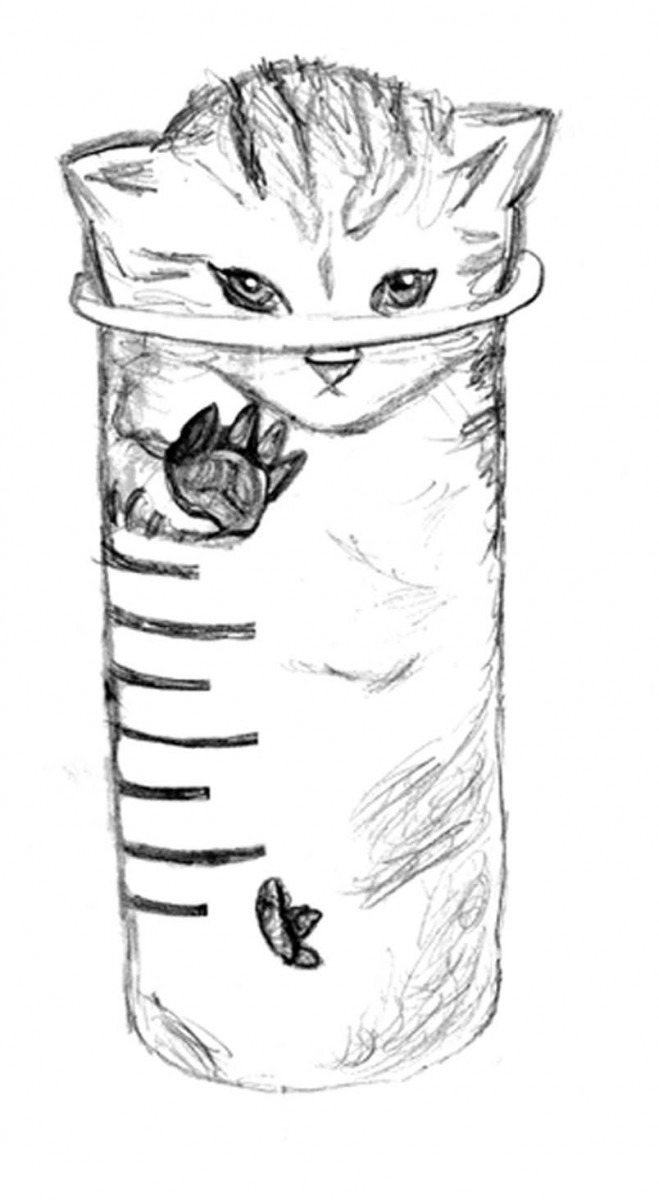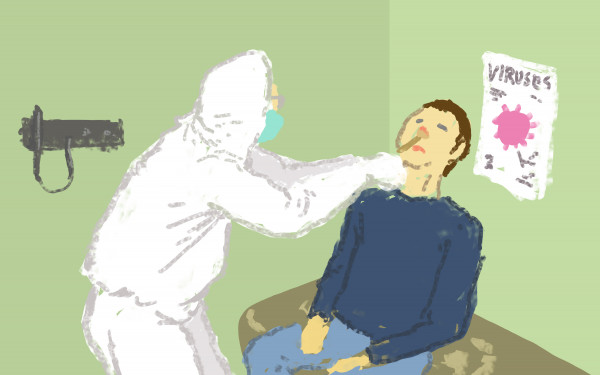Animal Sacrifice
Why Science Makes Animal Testing Ok
It’s tough to oppose animal cruelty—the surest sign of aberrant and antisocial behaviour you’re ever likely to find outside of cruelty to one’s own kind—and yet still support animal testing. But that’s exactly how I feel.
Animal sacrifice never went away; the superstitious reasons for animal martyrdom simply gave way to the scientific method.
The way we so totally control their lives- and the way we decide when it’s time for them to die- repulsed me. And yet it was never out of my mind that i was acting humanely.
So while it may now be unwise to, say, slaughter 15 cows because the weatherman forecasts clear skies and you need to plant your crops—their predictions are always wrong, anyways—it’s accepted wisdom that if you want to have any hope of finding a cure for cancer or a cure for AIDS in our lifetime, it pays to cut short the life of livestock.
Animal martyrdom in the name of science has probably never had such an effective PR campaign as it did during the space race. The sacrifice of animals in the name of conquering Earth’s gravity and touching the face of god—our god, not that it’s ever been proven that non-human species have deities—was portrayed in the media in the most anthropomorphic of representations.
Portraying chimps as willing collaborators in their almost assured destruction could either have been born out of an unconscious sense of unease with the rigours and eventual rigor mortus we were inflicting upon them, or in earnest admiration—perhaps even jealousy—that the privilege of being the first species to be launched into space wouldn’t belong to Earth’s star pupil, man, but to its dimwitted cousin in the chimp clan.
Heroic is a word we reserve for those who have some choice in the matter—anyone who agrees to have themselves launched into space tied to a gigantic rocket should be commended for their bravery—but the sacrifice of an animal is no less beneficial to lives around it, nor should its tragedy affect us less, just as when a human pays for their bravery.
That said, I love, without any sense of irony, my pets like they were a member of my own species.
I recently held in my arms a pet I had known my whole adult life—her name was Ribbon—as her body became as limp as a dishrag while the tranquilizer took from her the last fleeting moments of her consciousness, before a second needle would take her last, fleeting heartbeats. I owe her a lifetime, measured in my own, and not just her considerably shorter lifespan, for the companionship she provided.
The way we so totally control their lives—and the way we decide when it’s time for them to die—repulsed me. And yet it was never out of my mind that I was acting humanely.
So I don’t fear the obvious charges of cognitive dissonance as I say it should be a priority to limit the pain and suffering of animals just as we continue to exchange our suffering for theirs in the pursuit of life-saving sciences.
To the wiseass who asks, “Would you sacrifice the life of one innocent to save a dozen more?” I might add, “Would you sacrifice an animal if it could spare every human being who is ever born with Huntington’s disease, or MS, or any of a thousand deadly conditions?” I can only roll my eyes with the ugly implications of the question, and then reluctantly answer, “Yes.”
It may be a poor coupe-de-grace in support of an argument to compare one’s position—favourably, I might add—to one of obvious and clear disrepute, but is it any less awful to sacrifice animals to the god of science than it is to our guts?
This article originally appeared in Volume 31, Issue 09, published October 12, 2010.





web_600_375_90_s_c1.JPG)
_600_375_90_s_c1.jpg)
